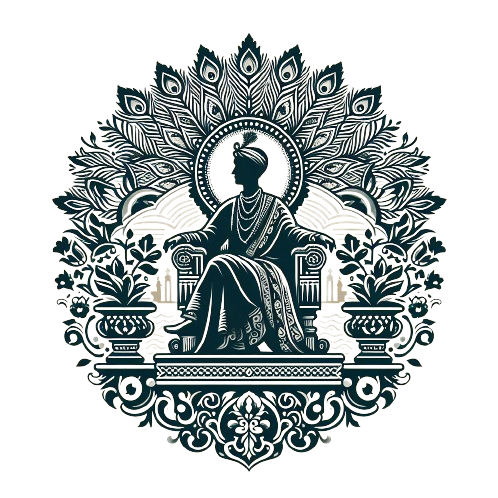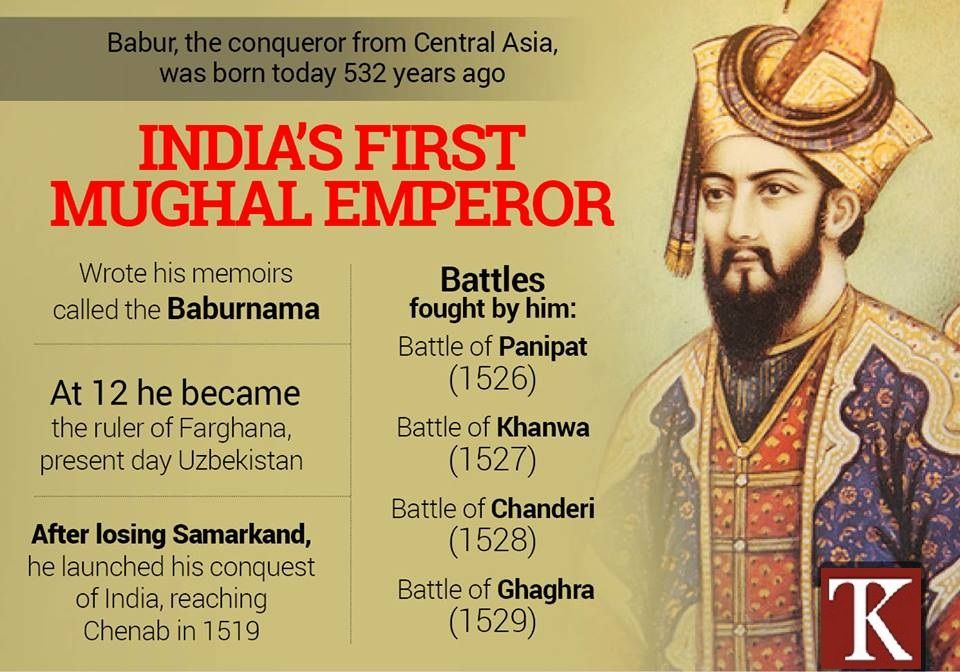Within the intricate fabric of Indian history, a single individual emerges as a crucial turning point—the first Mughal emperor. This mysterious king built the Mughal empire, renowned for its magnificence, cultural achievements, and lasting impact. In order to comprehend the origin of one of the most impactful lineages in Indian history, it is necessary to explore the life, conquests, and accomplishments of the inaugural Mughal emperor. This extensive investigation will reveal the narrative of this renowned individual, analyzing the historical circumstances, ascent to authority, and enduring influence on the Indian subcontinent.
The Rise of the Mughal Empire under the First Mughal Emperor, Babur
The Mughal Empire arose at a period of significant political turmoil in India. The waning of the Delhi Sultanate and the disintegration of local authorities resulted in an absence of authority that was subsequently filled by a fresh entity—the Mughals. Babur, the founder of the empire, gained renown in Central Asia before turning his attention to the Indian subcontinent.
Babur: The Inaugural Monarch of the Mughal Empire
Babur, also known as Zahir-ud-din Muhammad Babur, was born on February 14, 1483, in what is now Uzbekistan. He was the firstborn son of Umar Sheikh Mirza, the sovereign of Fergana Valley. From an early age, Babur showed exceptional leadership abilities and military expertise, characteristics that would greatly benefit him in his subsequent conquests.
Babur’s formative years were characterized by political machinations and strife. At the age of 12, he assumed the throne of Fergana after his father’s death. Nevertheless, his rule was brief, as competing tribes competed for dominance over the area. Compelled to evacuate his own area, Babur initiated a succession of military expeditions, endeavoring to establish a new territory for his own rule.
The Conquest of Hindustan refers to the military campaign aimed at gaining control over the region of Hindustan.
In 1526, Babur accomplished his most significant victory by conquering Hindustan. Babur, commanding a formidable army of experienced soldiers, confronted Ibrahim Lodi, the ruler of the Delhi Sultanate, in a decisive clash known as the Battle of Panipat. Babur’s superior tactics and military skill ensured a resounding triumph, even though he was outnumbered. Babur established the Mughal Empire in India after the decline of the Lodi dynasty.
Babur’s tenure as the first Mughal emperor was marked by a sequence of military expeditions with the objective of solidifying his authority and expanding his domain. Babur’s dominion extended over extensive regions of the Indian subcontinent, including the rich plains of the Punjab and the harsh terrain of the Deccan.
The historical significance of the First Mughal Emperor’s legacy
Babur, the first Mughal emperor, had a profound and wide-reaching impact that surpasses his military triumphs. Babur, a man with sophisticated preferences and a deep understanding of culture, was also very productive as a poet and writer. The Baburnama, his memoir, is an authentic and detailed narrative of his life and the historical context, providing significant perspectives on the political, social, and cultural aspects of medieval India.
Besides his artistic accomplishments, Babur’s administrative reforms established the foundation for the effective rule of the Mughal Empire. He developed a land income assessment system called zabt, which served as the foundation for Mughal taxation policy for many generations. Babur’s efforts to foster religious tolerance and plurality had an enduring influence on Indian culture.
Conclusion
Ultimately, Babur, the first Mughal emperor, has a pivotal position in the records of Indian history. His military victories, intellectual and artistic accomplishments, and systematic changes to the government established the basis for one of the longest-lasting ruling families in the area. Babur’s exceptional military skills and forward-thinking leadership enabled him to build the Mughal Empire as a prominent power in the Indian subcontinent. His enduring legacy still has significance in the present day.

